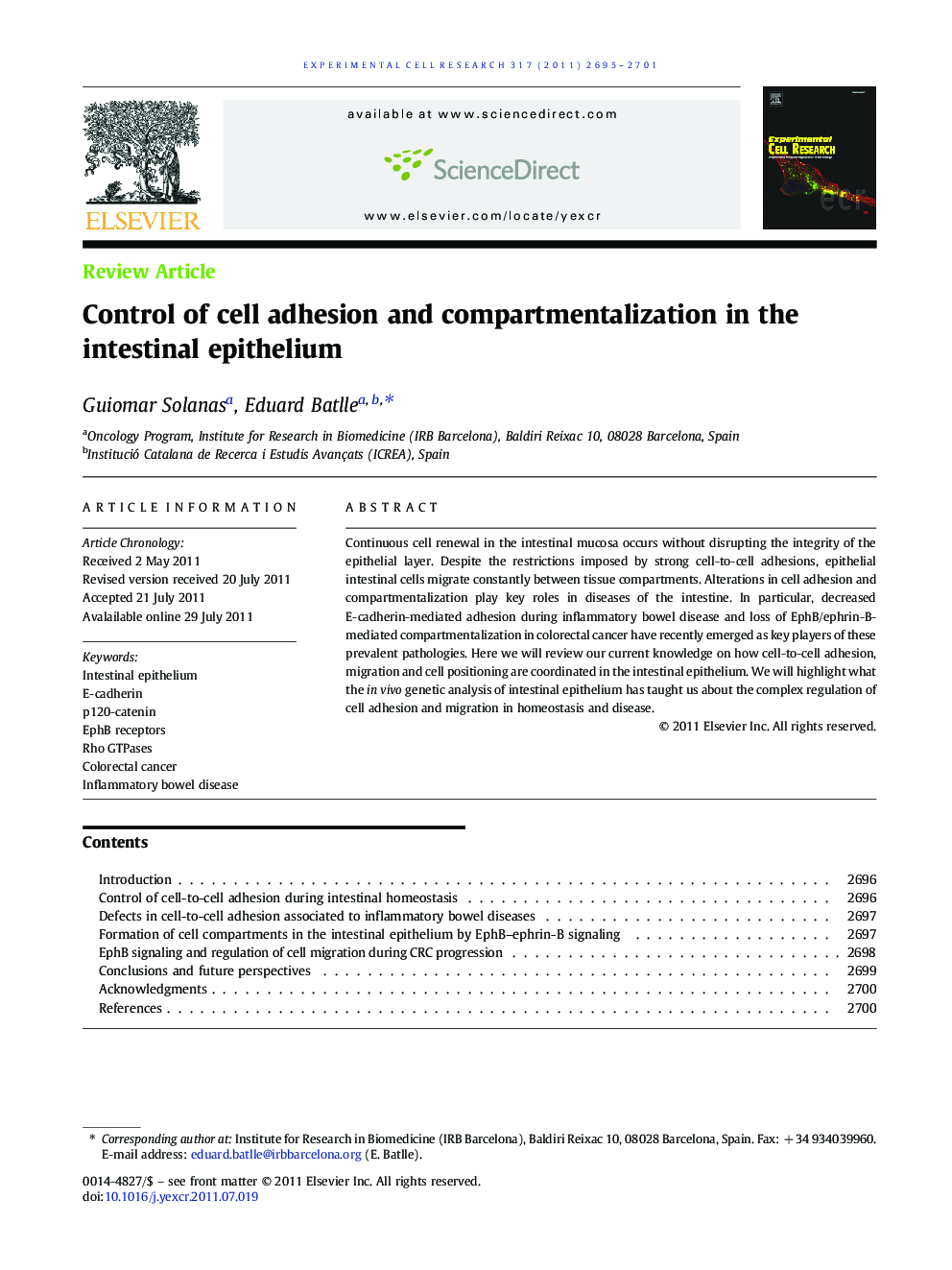| Article ID | Journal | Published Year | Pages | File Type |
|---|---|---|---|---|
| 2130752 | Experimental Cell Research | 2011 | 7 Pages |
Continuous cell renewal in the intestinal mucosa occurs without disrupting the integrity of the epithelial layer. Despite the restrictions imposed by strong cell-to-cell adhesions, epithelial intestinal cells migrate constantly between tissue compartments. Alterations in cell adhesion and compartmentalization play key roles in diseases of the intestine. In particular, decreased E-cadherin-mediated adhesion during inflammatory bowel disease and loss of EphB/ephrin-B-mediated compartmentalization in colorectal cancer have recently emerged as key players of these prevalent pathologies. Here we will review our current knowledge on how cell-to-cell adhesion, migration and cell positioning are coordinated in the intestinal epithelium. We will highlight what the in vivo genetic analysis of intestinal epithelium has taught us about the complex regulation of cell adhesion and migration in homeostasis and disease.
